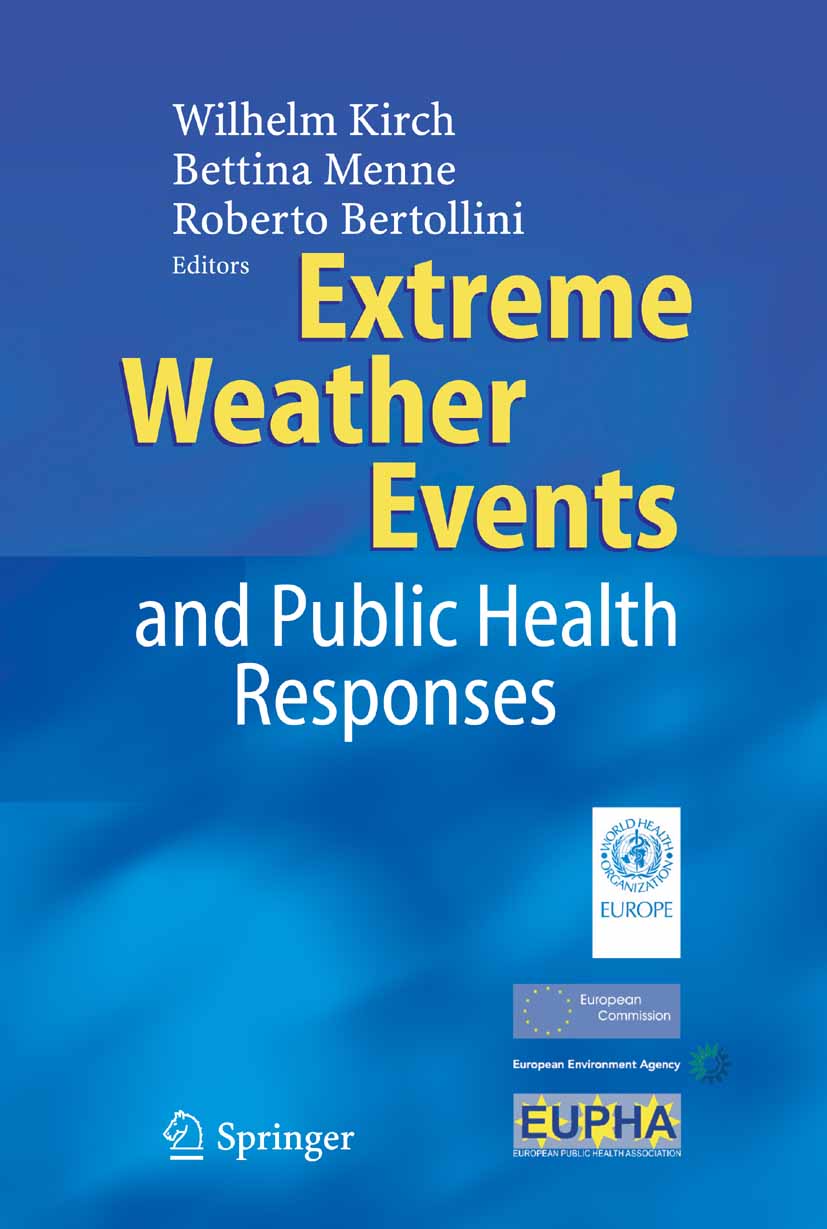Extreme Weather Events and Public Health Responses
| Auflage | 1. Auflage, 2006 |
| Verlag | Springer-Verlag |
| ISBN | 9783540288626 |
Sofort zum Download (Download: PDF)
Produktbeschreibung
"The global climate is changing. During the last 100 years warming has been observed in all continents with an average increase of 0.6 ± 0.2°C (man ± SD) in the course of the 20th century. The greatest temperature changes occurred at middle and high latitudes in the northern hemispheres. The trend towards warmer average surface temperatures for the period since 1976 is roughly three times that of the past 100 years as a whole. In the last decades warming seems to be attributable to human activities (man-made environmental changes) like land-use changes, deforestation, urbanisation and the reduction of wetlands. Global climate change is likely to be accompanied by an increase in frequency and intensity of extreme weather events. Climate variability occurs at both the level of gradual change as well as the level of extreme events. Extreme weather events are those events which society is unable to cope with. They are by definition rare stochastic events. Europe has experienced on unprecedented rate of extreme weather events in the last 30 years. Heat waves occurred in France, Italy, Portugal, Russian Federation, Hungary and Bulgaria between 2000 and 2003. The annual number of warm extremes increased twice as fast as expected based on the corresponding decrease in the rate of cold extremes. On the other hand cold waves brought serious health problems to Northern Europe, Russian Federation and even Bosnia Herzegovina. In 2002 Romania suffered deleterious windstorms and Public Health responses were necessary. Last but not least, in recent years severe flooding occurred in many European countries like U.K., Poland, Czech Republic, Austria, Italy and Germany causing enormous damages, e.g. in August 2002. On the basis of current predictions on climate, more extreme weather events have to be faced in the coming years and they are likely to be more severe. Thus appropriate actions have to be undertaken in order to protect the population and the countries affected. In this book, articles under the following headings are published: ""Climate variability and extremes in Europe"", ""Temperature extremes and health impact"", ""Response to temperature extremes"", ""Flooding: the impact on human health"", ""National case-studying of health care system responses to extreme weather events"" and ""Recommendations for Public Health responses to extreme weather events"". They shed light on the mode of development and the damages caused by extreme weather events and finally give some hints of what has to be done to cope with them."

